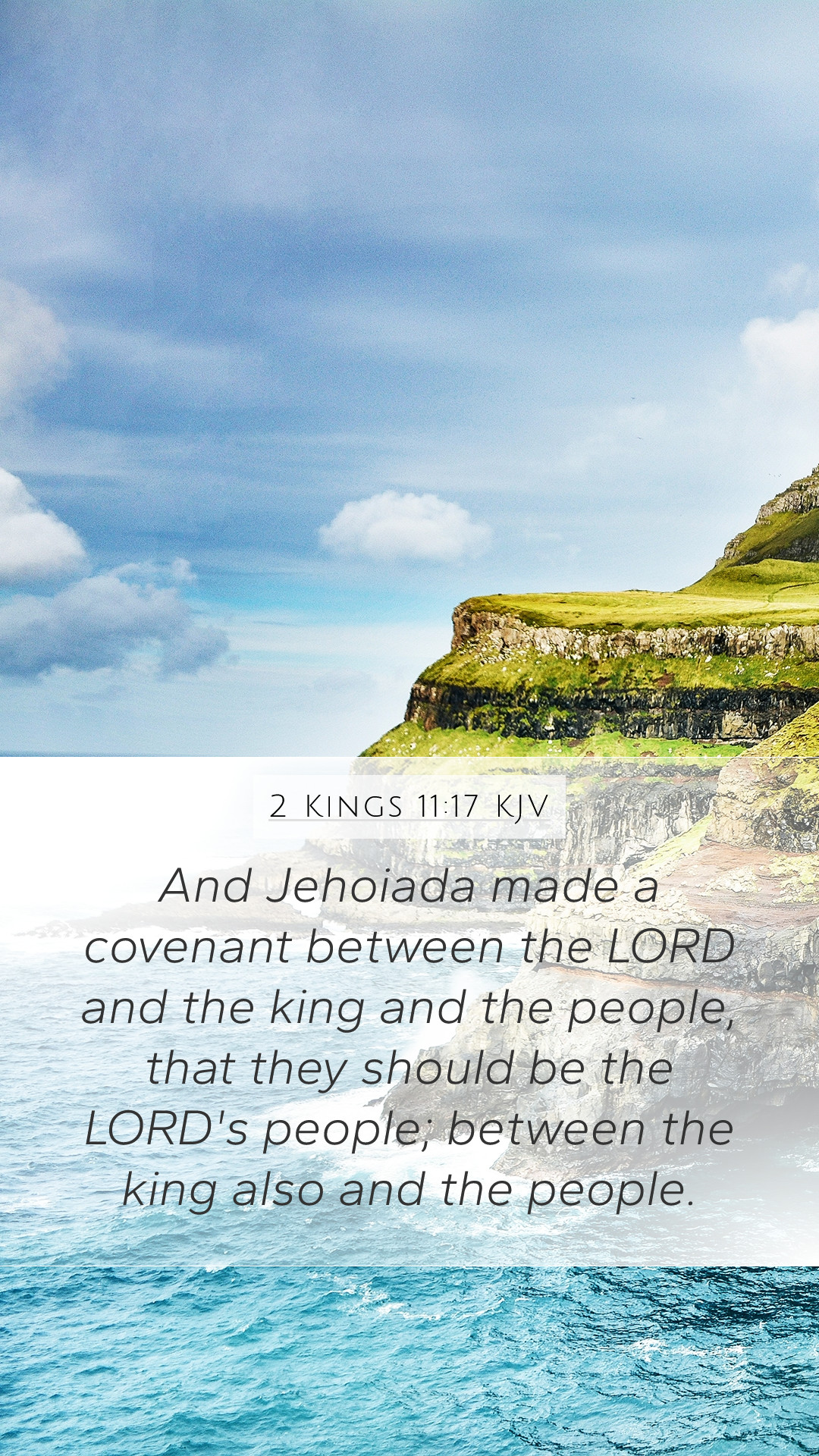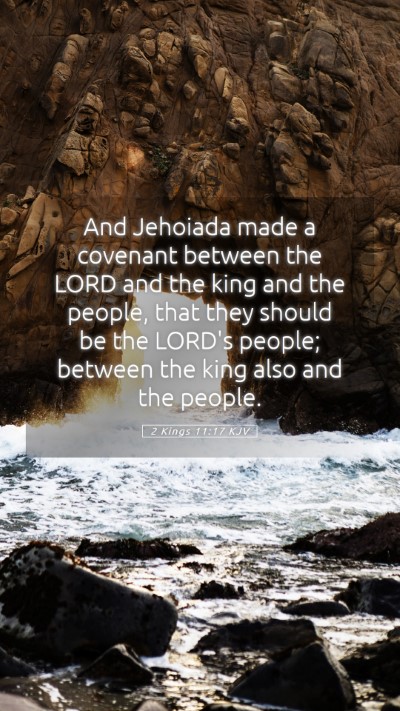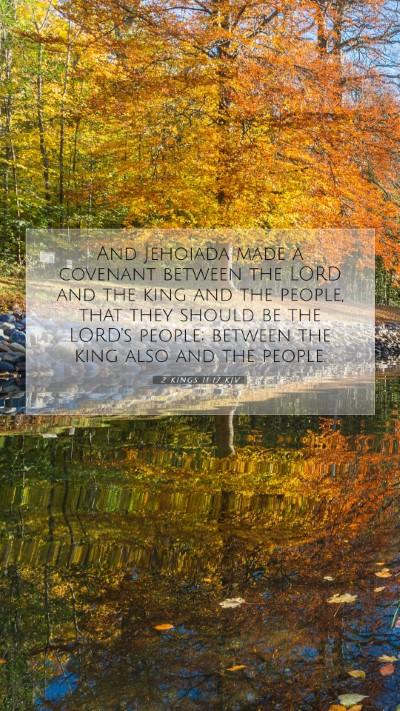Old Testament
Genesis Exodus Leviticus Numbers Deuteronomy Joshua Judges Ruth 1 Samuel 2 Samuel 1 Kings 2 Kings 1 Chronicles 2 Chronicles Ezra Nehemiah Esther Job Psalms Proverbs Ecclesiastes Song of Solomon Isaiah Jeremiah Lamentations Ezekiel Daniel Hosea Joel Amos Obadiah Jonah Micah Nahum Habakkuk Zephaniah Haggai Zechariah Malachi2 Kings 11:17 Meaning
What is the meaning of 2 Kings 11:17?
And Jehoiada made a covenant between the LORD and the king and the people, that they should be the LORD's people; between the king also and the people.
2 Kings 11:17 Bible Verse Meaning
Bible Verse Meaning - 2 Kings 11:17
Verse: "And Jehoiada made a covenant between the Lord and the king and the people, that they should be the Lord's people; between the king also and the people." - 2 Kings 11:17
Understanding the Scripture
The verse from 2 Kings 11:17 occurs during a critical moment in Israel's history when Jehoiada, the high priest, played a pivotal role in restoring rightful leadership and true worship after a period of tyranny under Athaliah. This passage illustrates the establishment of a covenant that signifies both spiritual and political allegiance to the Lord.
Bible Verse Interpretations
- Matthew Henry's Commentary: Henry emphasizes the importance of the covenant as it reinstates the people's commitment to follow the Lord. He notes how the priesthood plays a crucial role in guiding the nation towards righteousness and how this covenant binds both the leaders and the people in worship.
- Albert Barnes's Notes: Barnes highlights the necessity of this covenant in a time of political instability. He discusses how Jehoiada's action represents a divine mandate for both worship and governance, urging the people to honor their covenant with God and acknowledging their responsibilities as a holy nation.
- Adam Clarke's Commentary: Clarke dives into the historical context, explaining how Athaliah had led the nation astray, and Jehoiada’s covenant was a necessary restoration of true worship. He also sees this act as a crucial step toward the future reign of a Davidic king, emphasizing the continuity of God's promises.
Bible Verse Commentary
This verse encapsulates themes of leadership, accountability, and divine fidelity. Jehoiada’s covenant was not merely a political document; it was a spiritual declaration. The commitment to be the Lord's people reflects the broader biblical theme of God's desire for His people to worship Him sincerely. Such covenants often involve responsibilities, and in this case, it set the foundation for Israel's return to faithfulness.
Scripture Analysis
In analyzing 2 Kings 11:17, we recognize the historical backdrop of national disarray. Athaliah had attempted to wipe out the Davidic line, and Jehoiada's actions served as a turning point. This verse reinforces the notion that righteous leadership is essential for the spiritual health of a nation.
Biblical Exegesis and Historical Context
The historical context of this verse is rich. Athaliah usurped the throne after the death of her son, king Ahaziah. The covenant established here signals the restoration of the rightful heir and the return to the worship of Yahweh. Jehoiada’s role as the high priest emphasizes the intertwining of religion and governance in ancient Israel.
Application of the Verse
The application of 2 Kings 11:17 in today's context can inspire both personal and community commitments to faith. The verse calls believers to consider their own commitments to God and how those commitments shape their relationships and responsibilities in society. In contemporary terms, it prompts believers to engage with their communities as representatives of God's covenant.
Related Cross References
- 2 Kings 11:12: Establishing the rightful king as an infant, symbolizing hope.
- 2 Chronicles 23:16: Jehoiada makes a covenant with the people, further elucidating this event.
- Exodus 19:5-6: God’s covenant with Israel to be His treasured people.
- Deuteronomy 7:6: Israel as a holy people, chosen by God.
- Jeremiah 31:31: A new covenant that God promises, foreshadowing the ultimate redemption.
Conclusion
This verse from 2 Kings illustrates the foundational aspects of covenant theology in the Old Testament. It emphasizes the relationship between God, the leaders, and the people, underscoring the importance of faithfulness and identity within the community of believers. Through this interpretation, readers gain deeper insights into how to apply biblical principles to contemporary life, encouraging ongoing Bible study and reflection.


